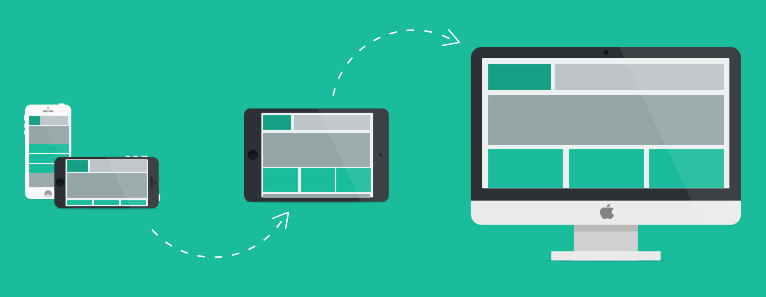- 1
- 2
- 3
- 4
- 5
- 6
- 7
- 8
- 9
- 10
- 11
- 12
- 13
- 14
- 15
- 16
- 17
- 18
- 19
- 20
- 21
- 22
- 23
- 24
- 25
- 26
- 27
- 28
- 29
- 30
- 31
- 32
- 33
- 34
- 35
- 36
- 37
- 38
- 39
- 40
- 41
- 42
- 43
- 44
- 45
- 46
- 47
- 48
- 49
- 50
- 51
- 52
- 53
- 54
- 55
- 56
- 57
- 58
- 59
- 60
- 61
- 62
- 63
- 64
- 65
- 66
- 67
- 68
- 69
- 70
- 71
- 72
- 73
- 74
- 75
- 76
- 77
- 78
- 79
- 80
- 81
- 82
- 83
- 84
- 85
- 86
- 87
- 88
- 89
- 90
- 91
- 92
- 93
- 94
- 95
- 96
- 97
- 98
- 99
- 100
- 101
- 102
- 103
- 104
- 105
- 106
- 107
- 108
- 109
- 110
- 111
- 112
- 113
- 114
- 115
- 116
- 117
- 118
- 119
- 120
- 121
- 122
- 123
- 124
- 125
- 126
- 127
- 128
- 129
- 130
- 131
- 132
- 133
- 134
- 135
- 136
- 137
- 138
- 139
- 140
- 141
- 142
- 143
- 144
- 145
- 146
- 147
- 148
- 149
- 150
- 151
- 152
- 153
- 154
- 155
- 156
- 157
- 158
- 159
- 160
- 161
- 162
- 163
- 164
- 165
- 166
- 167
- 168
- 169
- 170
- 171
- 172
- 173
- 174
- 175
- 176
- 177
- 178
- 179
- 180
- 181
- 182
- 183
- 184
- 185
- 186
- 187
- 188
- 189
- 190
- 191
- 192
- 193
- 194
- 195
- 196
- 197
- 198
- 199
- 200
- 201
- 202
- 203
- 204
- 205
- 206
- 207
- 208
- 209
- 210
- 211
- 212
- 213
- 214
- 215
- 216
- 217
- 218
- 219
- 220
- 221
- 222
- 223
- 224
- 225
- 226
- 227
- 228
- 229
- 230
- 231
- 232
- 233
- 234
- 235
- 236
- 237
- 238
- 239
- 240
- 241
- 242
- 243
- 244
- 245
- 246
- 247
- 248
- 249
- 250
- 251
- 252
- 253
- 254
- 255
- 256
- 257
- 258
- 259
- 260
- 261
- 262
- 263
- 264
- 265
- 266
- 267
- 268
- 269
- 270
- 271
- 272
- 273
- 274
- 275
- 276
- 277
- 278
- 279
- 280
- 281
- 282
- 283
- 284
- 285
- 286
- 287
- 288
- 289
- 290
- 291
- 292
- 293
- 294
- 295
- 296
- 297
- 298
- 299
- 300
- 301
- 302
- 303
- 304
- 305
- 306
- 307
- 308
- 309
- 310
- 311
- 312
- 313
- 314
- 315
- 316
- 317
- 318
- 319
- 320
- 321
- 322
- 323
- 324
- 325
- 326
- 327
- 328
- 329
- 330
- 331
- 332
- 333
- 334
- 335
- 336
- 337
- 338
- 339
- 340
- 341
- 342
- 343
- 344
- 345
- 346
- 347
- 348
- 349
- 350
- 351
- 352
- 353
- 354
- 355
- 356
- 357
- 358
- 359
- 360
- 361
- 362
- 363
- 364
- 365
- 366
- 367
- 368
- 369
- 370
- 371
- 372
- 373
- 374
- 375
- 376
- 377
- 378
- 379
- 380
- 381
- 382
- 383
- 384
- 385
- 386
- 387
- 388
- 389
- 390
- 391
- 392
- 393
- 394
- 395
- 396
- 397
- 398
- 399
- 400
- 401
- 402
- 403
- 404
- 405
- 406
- 407
- 408
- 409
- 410
- 411
- 412
- 413
- 414
- 415
- 416
- 417
- 418
- 419
- 420
- 421
- 422
- 423
- 424
- 425
- 426
- 427
- 428
- 429
- 430
- 431
- 432
- 433
- 434
- 435
- 436
- 437
- 438
- 439
- 440
- 441
- 442
- 443
- 444
- 445
- 446
- 447
- 448
- 449
- 450
- 451
- 452
- 453
- 454
- 455
- 456
- 457
- 458
- 459
- 460
- 461
- 462
- 463
- 464
- 465
- 466
- 467
- 468
- 469
- 470
- 471
- 472
- 473
- 474
- 475
- 476
- 477
- 478
- 479
- 480
- 481
- 482
- 483
- 484
- 485
- 486
- 487
- 488
- 489
- 490
- 491
- 492
- 493
- 494
- 495
- 496
- 497
- 498
- 499
- 500
- 501
- 502
- 503
- 504
- 505
- 506
- 507
- 508
- 509
- 510
- 511
- 512
- 513
- 514
- 515
- 516
- 517
- 518
- 519
- 520
- 521
- 522
- 523
- 524
- 525
- 526
- 527
- 528
- 529
- 530
- 531
- 532
- 533
- 534
- 535
- 536
- 537
- 538
- 539
- 540
- 541
- 542
- 543
- 544
- 545
- 546
- 547
- 548
- 549
- 550
- 551
- 552
- 553
- 554
- 555
- 556
- 557
- 558
- 559
- 560
- 561
- 562
- 563
- 564
- 565
- 566
- 567
- 568
- 569
- 570
- 571
- 572
- 573
- 574
- 575
- 576
- 577
- 578
- 579
- 580
- 581
- 582
- 583
- 584
- 585
- 586
- 587
- 588
- 589
- 590
- 591
All about Google mobile result pages: "mobile-first"
We share everything we know about the changes in Google's mobile index.
We've all heard a lot about the "mobile-first" index - it's a good beginning from Google, which really meets the modern requirements of users. More and more people are surfing the Internet from smartphones, so it's not surprising that the largest search engine has decided to re-do indexing and ranking for the convenience of mobile device users.

But, like any innovation, the new index has already gathered around itself a lotr of rumors and conjectures. Someone thinks that mobile-first will greatly affect the ranking and break all seo-optimization, someone says that now you need to completely redesign your sites, also others just quietly panic.
But "mobile-first" is not as "only mobile" - so there's nothing to be afraid of. Yes, something will change, but not everything - you do not have to completely rewrite the code. Moreover, even if your site is not optimized for mobile devices, you still will be there (although you will lose a little rating). We collected all the information that you can only find at this post - so if you have questions about the new mobile index, this article is for you.
The new index means that Google will create and rank sites based on the quality and consistency of content for mobile devices, while also taking into consideration desktop users.
Since the announcement from Google, we are monitoring what the employees of this company say about changes in blogs and during the interview. Below you will find a compilation of these questions and answers.
What will change with the introduction of the new index?

The number of smartphones and tablets is increasing every year - in 2017, sold more than 1 billion devices. Therefore, it is logical that Google was concerned that indexing and delivery results displayed pages relevant to smartphone users. In Google, they decided that these pages should also be loaded quickly and comfortably viewed on mobile devices. So to test your site you can use a tool from Google PageSpeedInsights.
As the main index of the search engine, the indicator is "mobile versions of sites." The search engine index is a set of pages / documents detected by the search engine, primarily by scanning the Internet, making referrals. Previously, Google scanned the Internet from the perspective of the desktop computer's browser, and now Google is changing its approach to surf the web from the browser of mobile devices.
What if you do not have a mobile site or adapted design for mobile version?
Google said that there is nothing to worry about. Of course, they want you to have a mobile site, but the search engine will also scan the desktop version. Google said: "If you only have a desktop version of the site, we will continue to index and rank your site in the same way as before, even if we use a mobile-oriented agent to view your site."
If you have a mobile site, you need to take care and make sure that the content and links on the mobile site are identical to the desktop version.
My mobile site has less content than the desktop version. Do I need to be nervous?
Well, probably, yes. Google said that if it scans a mobile version of your site and there's less content on it’s page than on the page of your desktop version, then the mobile version with its less content is most likely to be considered.

That's why Google recommends using an adaptive design when creating a site, in which the content will be the same for both the mobile device and the computer.
When will this be fully realized?
Google said that they have already started testing this mobile index for some users. But it looks like it's still a long way from the end of the tests. Google will not give us the exact date, because they are still testing and weighing the possible consequences, and if everything goes well, we will soon see it in action. If everything still not so good, they can delay the launch.
Google also said that over time, they will attract more and more users to the test version.
What about expandable content on mobile pages?
Google has told long time ago that if it comes to desktop sites, hidden and disclosed content is not so important. But on mobile sites, such content will be evaluated in the same way as all other content, in order to make it more convenient for users. That is for mobile sites such content is very important, for desktop - no.
Does this innovation greatly affect the ranking in Google?
Garry Illays and Paul Haar (Google staff) said that the ranking will not change much. In general, Google wants to minimize the impact of the new index on the ranking. They say that for the time being one can not speak confidently, but their goal is not to let the changes in the index greatly change the current state of affairs.
How do I know if Google sees my online store correctly?
The best way to find out is to use the appropriate tool in the Google Webmaster Tools console. Specify the mobile user agent and look at the preview after the rendering is completed. The fact that Google shows you the results obtained is likely what Google can see and index from your mobile site.
Signals for ranking will come from your mobile site, not from the desktop version

Earlier, Google estimated how to rank your mobile site based on many signals from your desktop version of the online store, as we have previously considered. And that's what it will change - Google will evaluate and rank your mobile and desktop versions of the sites based on the signals they receive from scanning the site from the mobile version. We hope you understand this quibble? )
Thus, the speed of loading pages of your mobile site will determine the rating of your mobile site and desktop version in Google. Google will also likely review your headline, H1 tags, structured data and other tags and content created from your mobile site, and will use them to rank the desktop version of the site.
It would seem that there is a problem, because now Google will rank the desktop versions of the sites, based on their mobile appearance. That's right, but there's no problem here, because in the future the number of mobile users will only increase and if your mobile version is not yet ready for the download speed test and the convenience of browsing the pages - hurry to fix it, because we have the tools and experience.
Do Google have different indexes for mobile phones and computers?
Google plans to leave only one index, based on mobile content, as service for both those who use the computer, and for those who are surfing the Internet from the phone. While they will all test and configure, Google will have two indexes: one will give priority to desktop versions of sites (as now), the other - to mobile. The second index will be used by fewer people, but it will not be possible to track this, and people will not know what index Google uses for them at the moment.
Because Google is more confident in its mobile index, in the end, only it will remain. Or, if the mobile-first index turns out to be useless, Google can go back to the old indexing, which is imprisoned for desktop sites. In the end, they themselves call the introduction of a new index an experiment, so let's see where this leads till the end.
The Google blog said that their algorithms will eventually give priority to mobile versions of sites in the ranking. Paul Haar confirmed this statement and said that in the end all the same there will not be two different indexes (mobile for mobile, desktop for computers).
Because of this, the links and ratings of sites will change?
If there are fewer links on mobile sites than on desktop sites. The rating of the site in Google is very much dependent on links and content, so there is a fear that after the introduction of a new index, the ratings of sites may fall dramatically.
Google says that nothing is clear yet and they are still engaged in tests. Garry Illays, for example, said that he can not yet say anything definite about this, and that it's still too early for such statements, because everything can change.
Canonical references. Will it be necessary to change them?
No no need. Google said that you do not need to change anything and just follow the recommendations from their blog. If you have already done a rel = canonical tag - everything is fine, if not - make and forget about it. Mobile-first will not change anything.

Can I see the changes in the search result pages now?
Google said that you can not see the changes and the impact of the new index right now. In fact, they said they hoped that there would be little change even after the index was fully deployed. Paul Haar says that he will be very surprised if he notices some changes from the mobile-first index at this stage.
What can we say in the end? You still have time. In June 2017, Garry Illays said that, most likely, it will take several more years to completely introduce the mobile-first index. During these few years, you will need to make an ideally optimized site for mobile devices. If you (like most) have a "main" desktop site and an "additional" mobile - bring the second to the first level, because in a few years it will be so: the better mobile site and content on it, the better will be ranked and desktop version too.
NeoSeo Team.




Comments